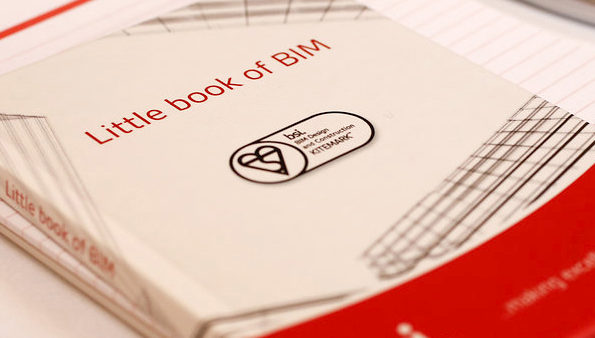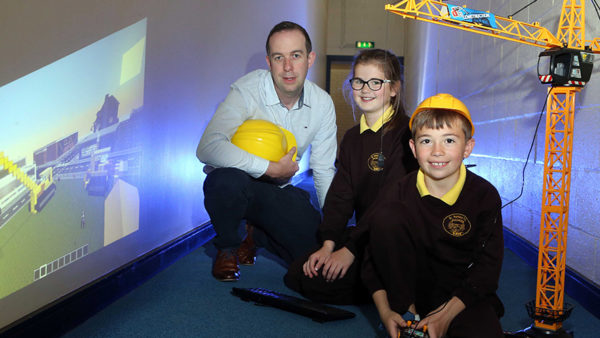CITB – Building Information Modelling
Half day workshop designed for SMEs and Tier 1 and 2 contractors.
The course covers:
- The key topics surrounding BIM and its benefits
- BIM technology
- The impact of using BIM and how to progress it in working practices
- How to review your current and future position in relation to BIM
- The software tools available to the construction industry
- How to start using BIM on projects.
Cost £150

CadNet – Elearning
CadNet offers online BIM training courses that are CPD accredited. There are 11 courses to choose from, ranging from basic introductory lessons to detailed learning about project deliverables and sustainability. Prices from £29-£49
www.cadnet.ltd.uk/bim-services/bim-elearning/
Campus
CadNet is currently offering Not in Education, Employment or Training (NEET) 19-24 year olds a free, 12-week, intensive full-time introduction to BIM training course at its purpose-built training suite in Newcastle (and soon also in Leeds). The course covers all essential aspects of BIM, teaching useable and relevant BIM skills that are transferable into the workplace and which will enable young people in the industry to make a valued contribution to their employer at a very early stage.
www.bimcampus.co.uk/course.html

5D BIM in action: success?
Croydon-based ost consultant and project manager Henry Riley was invited to write an information paper based on its experience of 5D BIM throughout 2012 and 2013. There is a particular focus on a project in which an RICS NRM 1 pricing document based on quantification from a BIM model was issued for tender.
This information paper includes:
- Project details
- Key problems identified, process and solution pre-tender
- Post-tender review
- Lessons learnt
The paper was published in August 2014 and is available to download here

BIM Task Group
The BIM Task Group is helping to deliver the objectives of the Government Construction Strategy and to strengthen the public sector’s capability in BIM implementation with the aim that all central government departments will be adopting, as a minimum, collaborative Level 2 BIM by 2016.
The group hopes to help the supply chain unlock more efficient and collaborative ways of working by bringing together expertise from industry, government, public sector, institutes and academia.
Through its website it provides links to key resources, and lessons learned from the exemplar BIM projects. There are numerous links on the website to events, surveys, news and articles as well as resources and quizzes and a weekly newsletter.
The task force has formulated a Level 2 BIM learning outcomes framework which is currently being developed. The aim is to provide guidance to institutions, training providers and educators developing and delivering training courses to employees in the sector.
The framework has been born out of a need to improve the breadth, depth, quantity and quality of educated and trained professionals in the built environment that can support the BIM programme across the rollout through 2016.
The Training & Education group noted that a number of training and education offerings concentrated on quite a narrow band of the industry. Courses focused on design and construction and not on briefing, planning and the impact of BIM to improving the operations of assets. Also training courses largely targeted technical users rather than management teams and strategic roles in organisations. In addition BIM education and training is focused on buildings rather than infrastructure.

BIM Academy
The BIM Academy was co-founded by Northumbria University and Ryder Architecture in 2010 to create an international centre of excellence for BIM offering research, education and consultancy. Its training offer includes three workshops, a Virtual Project and Tools Training.
BIM Basics Workshop (Half day)
Designed to bring up to speed those who have little or no understanding of BIM workflows and technologies. After an introduction to basic BIM concepts and uses, delegates will be introduced to the business value of BIM and the critical factors for successful implementation on projects.
The course outlines:
- Background on the evolution of BIM in the industry
- BIM processes
- Multidisciplinary collaborative working and technical challenges
- Brief overview of working standards and specifications such as PAS1192, LOD and other key documents
COBie Workshop (Half day)
Delegates will develop an understanding of what COBie is and its uses, both as part of the Government’s level 2 mandate and in the broader context of the construction industry.
- Documentation needed
- Responsibilities
- Production workflow options
- Classification systems
- Deep dive into the COBie data schema.
Production of COBie data “drop1” and “drop 3” using Excel and BIM Academy’s free tool – xBIM from Revit and IFC a example project files.
Level 2 BIM Workshop (1 day)
Building on the BIM Basics Workshop or existing BIM knowledge this workshop provides delegates with the knowledge needed to contribute to a Level 2 BIM project to PAS1192:2 and therefore the UK Government 2016 mandate.
The workshop follows the lifecycle of a compliant project covering:
- Employers Information Requirements
- BIM Execution Planning
- Common data environments (CDE)
- COBie data production
- Use and practical application of BIM Tools including demonstrations
This coursecovers critical documentation, workflows and deliverables required to become Level 2 / PAS1192 compliant.
The Virtual Project (3 days)
This intensive course is designed to allow a project team or company to experience BIM in a real time collaborative environment. It enables participants to explore the BIM process with none of the risk or costs which can arise on a real project.
- Clients, project managers, contractors and suppliers can quickly assess their capability and responsibility on a new project
- Avoid the inevitable problems that arise when bringing a project team together for the first time
- The course enables teams and organisations to develop knowledge without having to secure a project, or looking to build BIM experience at the bid stage
- Discover further evidence of the potential for BIM to enhance your business or project
- Through workshops, demonstrations and hands on opportunities experience the benefits of using BIM processes and tools for design, construction and operation
- Delivered by our multidisciplinary team of experienced and skilled practitioners
BIM Tools Training
BIM Academy promotes open standards in software and is technology neutral in its approach. It currently offers the following courses where the aim is to teach delegates the principles of Building Information Modelling through the application of tools.
- Revit Architecture Essentials (3 days)
- Revit Architecture Advanced (2 days)
- Navisworks Overview (1 day)
- Navisworks Clash Detective (1 day)
- Revit Family Creation (2 days)
http://collab.northumbria.ac.uk/bim2/
Comments
Comments are closed.












Good Morning,
We are very interested in attending a Building Information Project Management course, so as to make the way for introducing and overseeing BIM in our design office. Please can you inform us of any courses in the LEEDS area.
Jonathan O’Rorke
Technical and Operations Director
Treanor Pujol Ltd